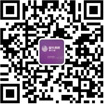SAT考试中的高频形近词
提到背单词,很多小伙伴都想说,其实内心我是拒绝的,表示对单词这群小恶魔真是毫无办法,对形近词更是觉得一头雾水累觉不爱。在新SAT考试语法部分,考察形近词的题型一直是童鞋们冲击满分道路上的拦路虎,原因是这些词拼写或者发音非常像,但意思却截然不同,如果不知两个单词之间的区别就极易做错。为帮助童鞋们提高正确率和备考效率,老师想和大家分享我觉得新SAT语法中可能让童鞋们傻傻分不清的形近词。
以下是SAT曾经出现过的高频12组形近词:
|
1 |
Auditory |
adj. 听觉的,听觉器官的 |
|
Audible |
adj. 能听见的 |
|
|
2 |
collaborate |
v. 合作 |
|
corroborate |
v. 证实,支持 |
|
|
3 |
desirous |
adj. 渴望得到某物的(人) |
|
desirable |
adj. 值得拥有的(物) |
|
|
4 |
exhaustive |
adj. 详尽的,彻底的 |
|
exhausted |
adj. 精疲力竭的 |
|
|
5 |
imminent |
adj. 即将发生的 |
|
eminent |
adj. 显赫的,杰出的 |
|
|
6 |
insure |
v. 投保险 |
|
ensure |
v. 确定,保证 |
|
|
7 |
indecisive |
adj. 不明确的,无判断力的 |
|
indefinite |
adj. 无限期的 |
|
|
8 |
opposite |
adj. (地理位置上)相反的 |
|
opposed |
adj. (抽象概念上)相反的 |
|
|
9 |
proceed |
v. 前进 |
|
precede |
v. 在…之前 |
|
|
10 |
prospective |
adj. 可能的,预期的 |
|
perspective |
n. 看法,观点 |
|
|
11 |
raise |
v. 举起(别的某物) |
|
rise |
v. (某物自己)上升 |
|
|
12 |
repel |
v. 击退,排斥 |
|
Propel |
v. 推动,驱使 |
在老SAT常考的高频易混词的基础上,老师根据新SAT的题目,给小伙伴们汇总了新SAT常考的易混词。饱受易混词摧残的宝宝们,接纯干货啦。
|
Definition |
Correct usage |
|
|
Accept vs. Except |
Accept- to receive or take as payment Except-with the exclusion of |
We accept credit cards for purchases except those under five dollars |
|
Affect vs. effect |
Affect (verb)-to influence or change Affect (noun)-emotion or feeling Effect (verb)- to cause a change; the object is the change |
The rain did not affect our crop yield. This was not the expected effect. Bill sought to effect changes in environmental policy. Laura claimed indifference, but displayed an excited affect. |
|
Allude vs. elude |
Allude-reference something indirectly Elude-to escape |
In The Aeneid, Vergil alludes to events in Roman history. In it, Aeneas eludes the Cyclopes. |
|
Complement vs. compliment |
Complement-to complete, make perfect Compliment-to give praise |
The red sash complements the rest of my outfit. I got many compliments on it today. |
|
Counsel vs. council |
Counsel (verb)-to complete, make perfect Counsel (noun)-advice Council-an assembly or meeting |
The council meets everyday. Their job is to counsel the king on matters of the State. |
|
Elicit vs. illicit |
Elicit-to bring out Illicit-not allowed by law |
We elicited a confession quickly. He was very open about his illicit behavior. |
|
Emigrate vs. immigrate |
Emigrate-to leave and mover to another place Immigrate-to come to a country to live there |
Programs are available for skilled workers to emigrate from Asia. Many have thus immigrated to the U.S. |
|
Eminent vs. imminent |
Eminent-standing out, prominent Imminent-about to take place |
Dark, eminent clouds filled the sky. A storm was imminent. |
|
Gracious vs. gratuitous |
Gracious-pleasantly kind, prominent Gratuitous-without reason or payment |
Molly was a gracious host at the party, even when a guest began yelling gratuitous insults. |
|
Infirmary vs. infirmity |
Infirmary-a place for care of the sick Infirmity-disability or weakness |
The infirmities she was suffering from only increased as she aged in the infirmary. |
|
Lose vs. loose |
Lose-become unable to find, misplace Loose-free, not bound together |
I will lose my keys if they are tied on with a loose knot. |
|
Precede vs. proceed |
Precede-to come before Proceed-to move forward |
A loud noise preceded the fireworks. The officers told us to proceed with caution. |
|
Principle vs. principal |
Principle-a rule or fact Principal (noun)-chief official Principal (adjective)-most important |
Always use the principle: “Ask before taking.” This is the principal way we keep track of items. |
|
Reluctant vs. reticent |
Reluctant- feeling hesitation Reticent-reserved, silent |
A reticent person, Jonah was reluctant to speak in public. |
|
Respectful vs. respective |
Respectful-showing respect or admiration for Respective-relating separately |
The guests were respectful of the rules she had set. They stayed at their respective tables. |
|
Than vs. then |
Than-a conjunction used to compare Then-next or soon after |
I told her I liked peas more than candy. Then she really thought I was lying! |
|
Too vs. to |
Too- in addition, also, or excessively To-a preposition used to show direction towards a point |
Please drive to the market this afternoon. Make sure you bring the coupons, too: you don’t want to spend too much. |
|
Weather vs. whether |
Weather-temperature and conditions Whether-which of the two |
I cannot decide whether to go to the park or the gym. I suppose it depends on the weather. |
|
Its vs. It’s |
Its is the possessive form of “it.” It’s means “it is.” |
It’s hard to tell when the baby will start crying. Its arched brows make it always appear upset. |
|
Their vs. They’re |
Their is the possessive form of “they.” They’re means “they are.” |
The team practiced all year, and their hard work paid off. They’re going to the championship. |
|
Whose vs. who’s |
Whose is the possessive form of “they.” They’re means “they are.” |
Who’s going to the store with me? Judy is. Now whose car should we take? |
|
Your vs. You’re |
Your is the possessive form of “you.” You’re means “you are” |
You’re too talented to give up acting. Plus, your voice is incredible. |
以上就是全文内容,请各位同学可以在不断的学习中,不断丰富这个列表,形成属于自己的一套单词表,这才是区分易混词的王道。希望对考生们有所帮助!
济南新航道专注于济南sat培训,设有专业sat培训班更多专业知识可点击济南新航道官网咨询。
SAT快讯
- CB官网宣布取消了SAT1国际... 2018-07-04
- 在席卷全球的低龄化留学浪... 2015-49-10
- 词汇量是英语的基础。以前... 2016-33-08
- 5月亚太SAT首考的学生已经... 2016-49-23
- 2016-02-11



